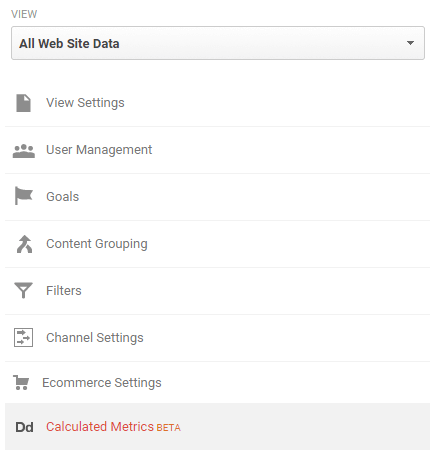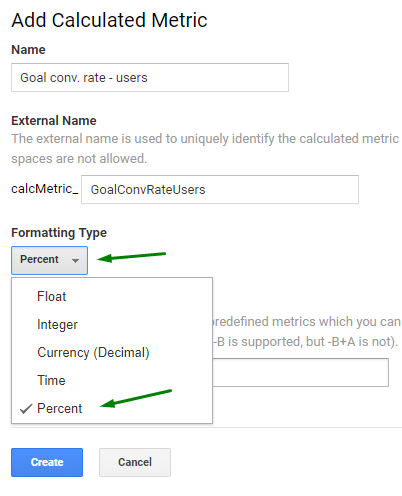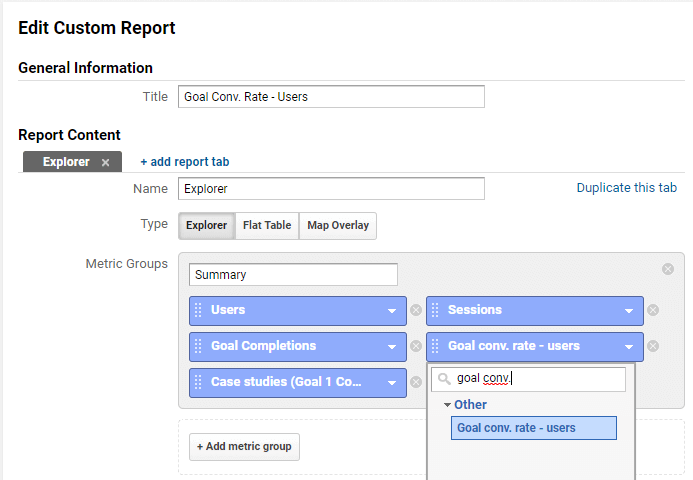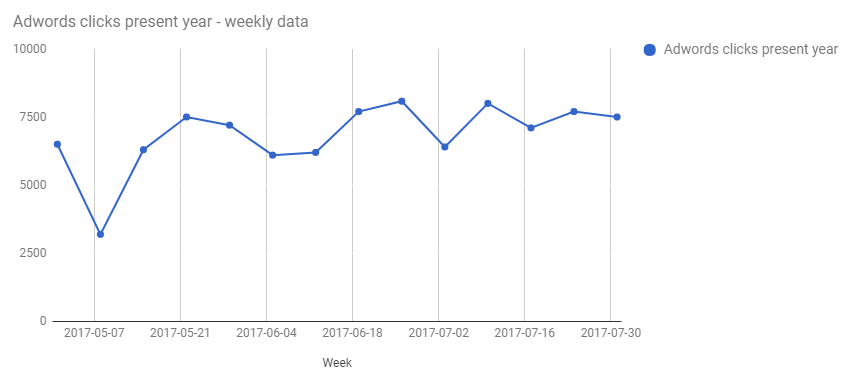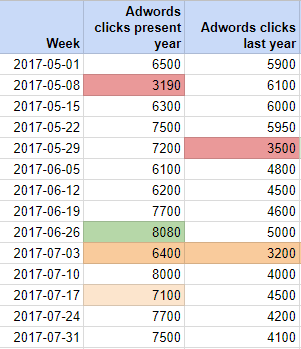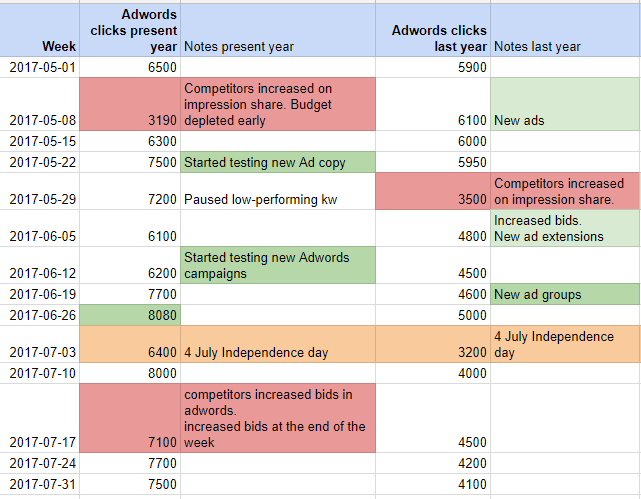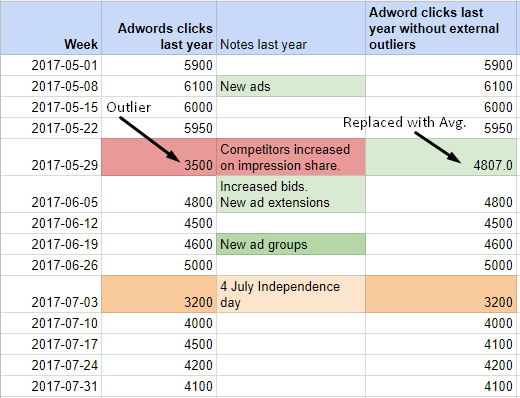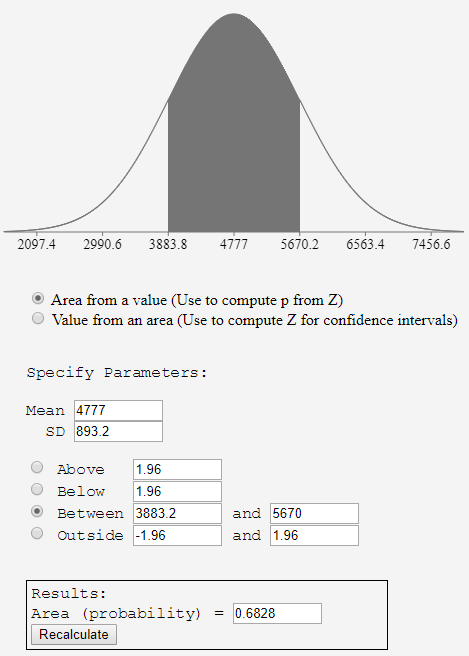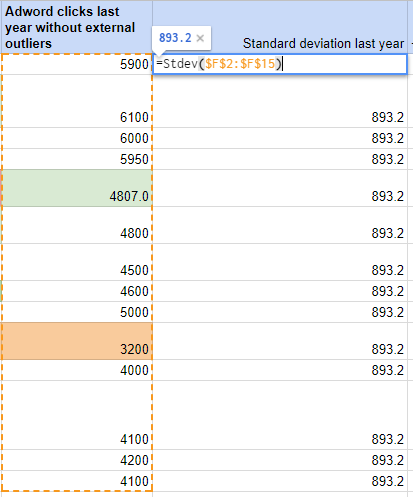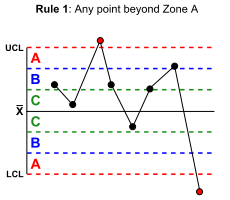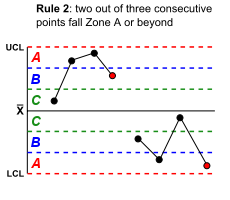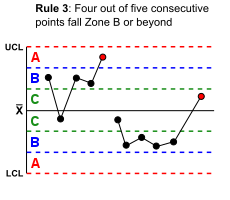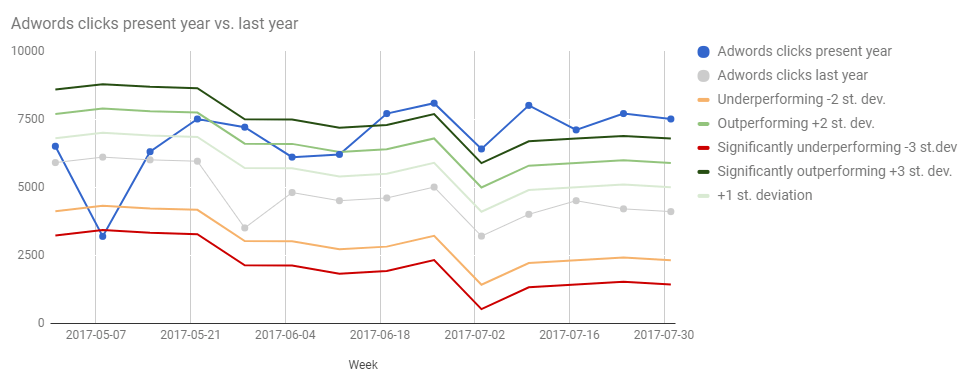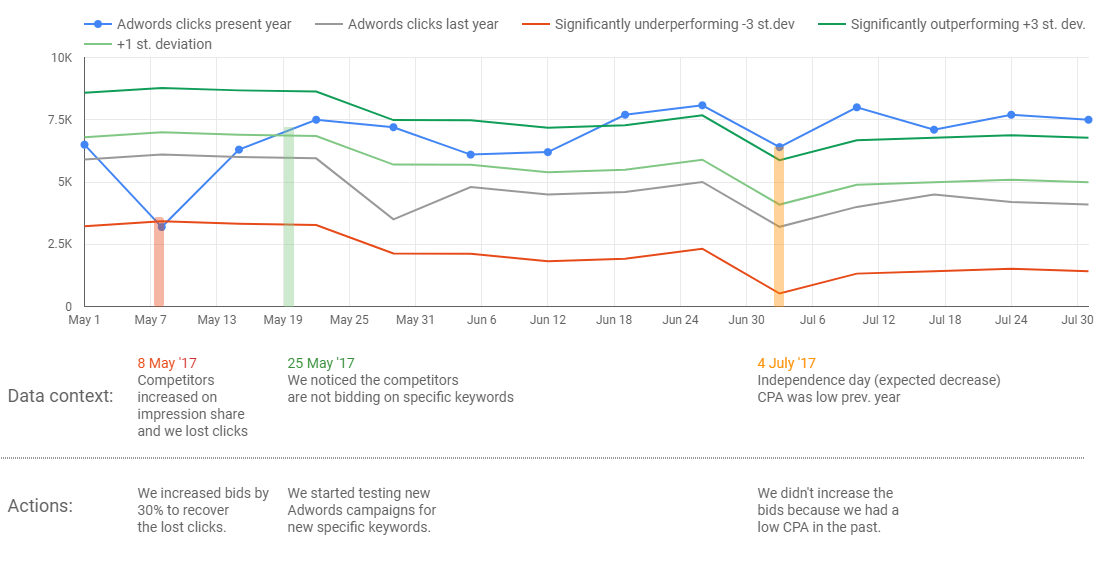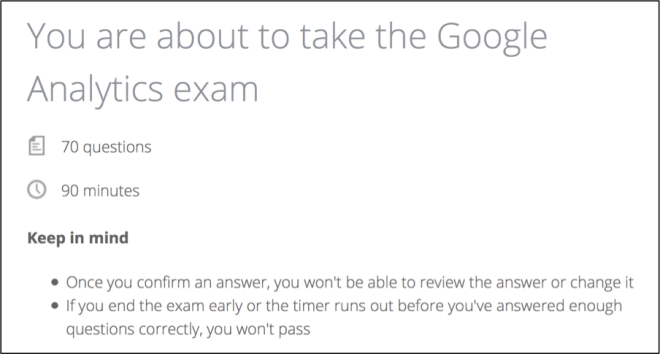🕑 Est. reading time: 5 minutes
If you ask a digital analyst on how he/she would like to develop their career the person might respond with an interest to get into data modelling or data science. Sometimes a digital analyst might mention an interest to improve the skills on data visualization (using PowerBI or other tool), storytelling with data, stakeholders management, improve tag management skills (using a tool like GTM) or learn a new analytics tool. (like Adobe Analytics)
Based on my exploration, I noticed there is an overlap on some of the actions a digital analyst and a data scientist do.
A proficient digital analyst is more focused on detecting causality and test for statistical significance while data scientists are doing advanced statistical analysis, machine learning or build predictive models.
In the picture below, the actions in column 1 and 2 below can be done by a good analyst while a good data scientist can usually do actions in the columns 2 and 3.
(You can also click on picture below if you want to load it in a new tab on a small screen.)
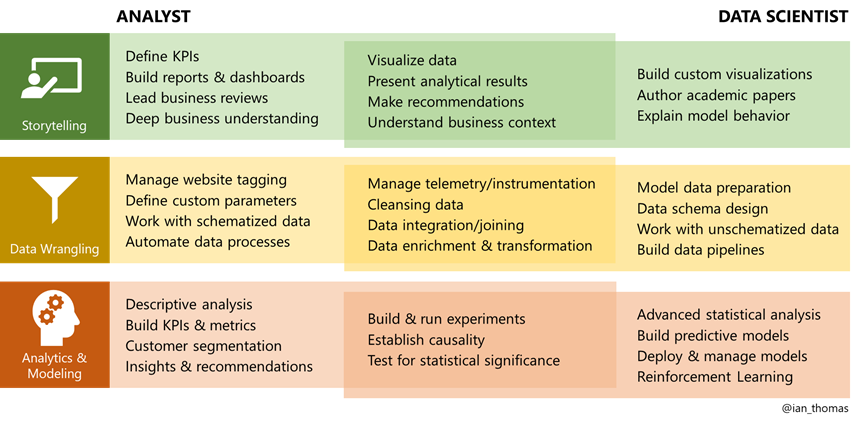
With an array of tools at the disposal of digital analysts and an even more varied range of skills digital analysts can learn, which ones are worth investing in for 2020?
When it comes to data modelling, research shows some clear top choices: Python, R and SQL.
I have created on twitter in February a short poll to see the level of interest for each and to see also other responses. From 531 votes, Python was the top choice (47.1%) followed by SQL (21.8%) and R (19.4%).
In the “Other” last option the responses in the comments included:
GCP and Azure – 2 mentions
Java, React, Julia, Adobe Analytics and PowerBI – 1 mention
I was happy to see “people skills” mentioned even it was only once but to be fair it wasn’t included in the list of options:

A study made by the McKinsey company shows that not only technological skills but also social and emotional skills will become more important as intelligent machines take over more some of the basic/repetitive tasks.
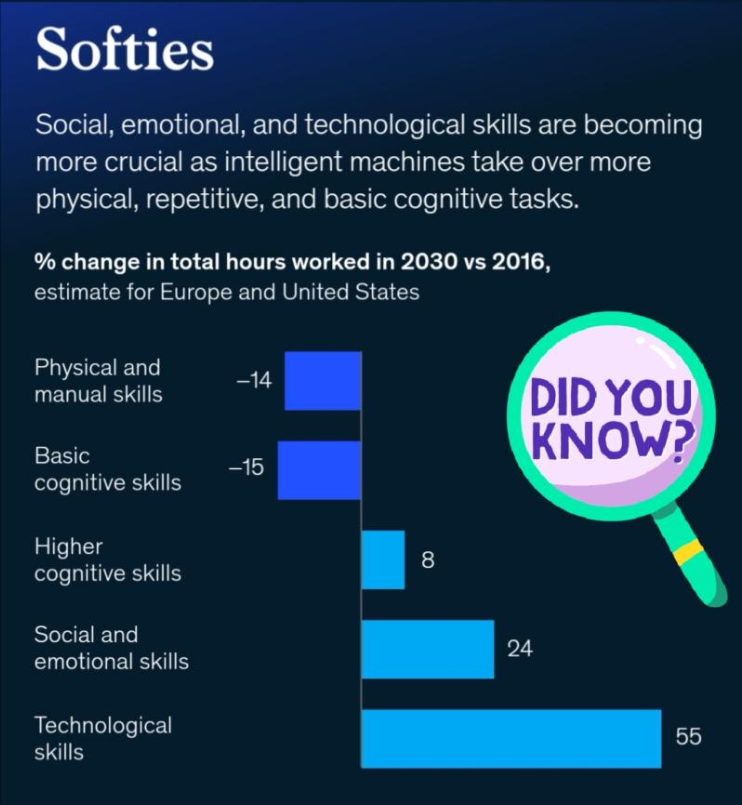
When dealing with projects that are more complex it might be useful to have a combination between curiosity, humble attitude and patience.
While some people think that a digital analyst’s role, like that of a data scientist, is mainly technical, a minimum level of communication will still be required.
This is important because the person will need to explain the results of a project or maybe to promote the project itself in a clear way.
Patience is good to learn and evolve and it can be used also when explaining to non-technical people or people who might be technical but maybe data analysis is not their main interest. If you are speaking too fast (or running too fast) people might not be able to understand you.
Proficient digital analysts or data scientists have a medium to high level of communication (they know how to communicate to non-technical people).
Regarding the Python top choice it seems that also another study shows similar results for top choice as a modelling coding language
For example, according to the latest trend search on Indeed, Python is said to be the top skill for a data scientist by the percent of jobs.
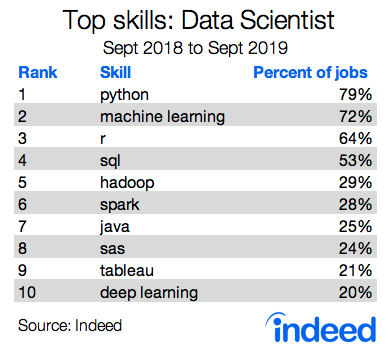
This is further strengthened by the fact Python is generally considered easier to learn, beats both R and SQL in terms of being a primary modelling coding language.
Python also shows at the top when it comes to one of the most regularly used data science tool. Keep in mind when looking at the chart below or other similar charts that people might use a combination of tools like for example writing code in Python while using Jupiyer Notebooks and doing some machine learning with Scikit-learn.
Google Trends shows a higher interest on “python data science” vs. “r data science”:
https://ssl.gstatic.com/trends_nrtr/2051_RC11/embed_loader.js trends.embed.renderExploreWidget(“TIMESERIES”, {“comparisonItem”:[{“keyword”:”python data science”,”geo”:””,”time”:”today 5-y”},{“keyword”:”r data science”,”geo”:””,”time”:”today 5-y”}],”category”:0,”property”:””}, {“exploreQuery”:”date=today%205-y&q=python%20data%20science,r%20data%20science”,”guestPath”:”https://trends.google.com:443/trends/embed/”});What can you do with Python ?
- Data scraping
- Data analysis and mining
- Data visualization
- Machine Learning
If you want to see an example on how you can use Python with Google Analytics data see the link here: Python and Google Analytics
————————
I have posted the poll also on Linkedin and I have received in the comments section also mentions about:
Storytelling with data – 3 mentions
GTM – 2 mentions
Data Science – 1 mention
PowerBI – 1 mention
Stakeholder management – 1 mention

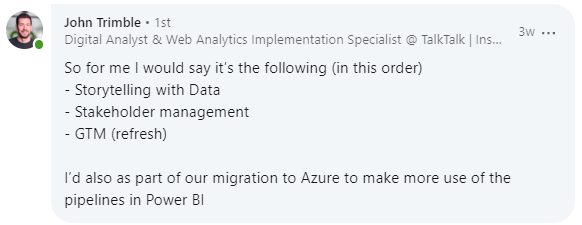

If you want me to add some resources related to specific skills or tools let me know in the comments.
I might create a new article with resources if there is enough interest.





